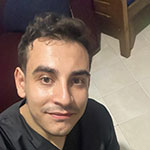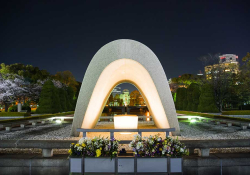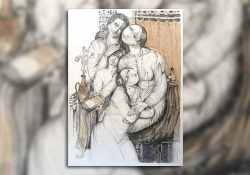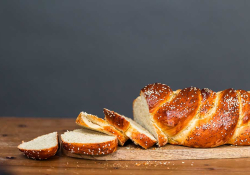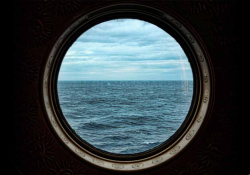And Hunger Was Given Dominion over Us
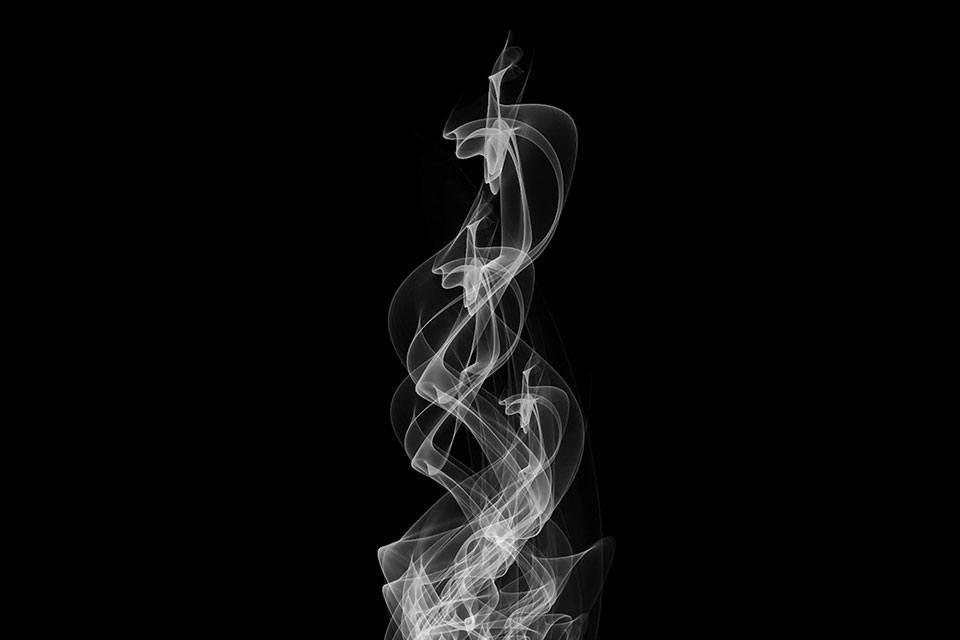
This poem came to me, passed cell phone to cell phone by journalists, with the request that I help it be published in the English-speaking world. It was written by Dr. Ezzideen Shehab, a twenty-eight-year-old physician working to assist the injured and starving of Gaza, to which he returned following a decade of medical studies abroad. Five days after his return, the war began. He founded Alrahma Medical Center, a small clinic “to help people because of the complete siege on hospitals,” he writes. “Most importantly, I am a voice for the voiceless.” He has lost seventy-two family members.
The poem is a testament to Palestinian life and culture, and it is also a report from a war to eradicate Palestinians, a report from agony and forced starvation. The word genocide appears in the poem. Therefore, to some, the poem will be viewed as “political.” At this writing, humanitarian and human rights organizations the world over have agreed that this term currently applies to what is happening in Gaza, where people are now being starved to death. It is time to stop worrying about a word appearing in a poem, and time to hope that, as you are reading this, in whatever future moment, the poet is still alive.—Carolyn Forché
Two events were once the holiest of rites in the life of a Palestinian:
sacred, radiant days which even God Himself might not deny a man,
the day he graduated with honor, and the day he was wed.
Graduation was a covenant, a contract with dignity,
with one’s father’s trembling pride, and one’s mother’s silent prayers.
Marriage, meanwhile, was no less than a hymn to life itself:
the triumph of blood that continues, of names that do not die,
of flesh that does not vanish. Even now, buried under ruins and blood,
I remember how men used to preserve the suit they wore on that one
luminous day, the day of vows, of drums, and jasmine.
It was kept folded, still fragrant with hope, so that one day
a child or a grandchild might find it and know: we lived.
But hope is a fragile thing. Genocide is a patient beast.
It crept even into our closets. Yesterday, I watched a man offer
his wedding suit for five kilograms of flour. Only five.
He told me, with that dreadful, apologetic calm of the starving,
that he had worn it only once and never meant to part with it.
But his children, he said, could no longer bear the hunger.
He had nothing else left to give.
Before the war, flour cost less than two dollars.
Now, it costs memory. Now, it costs love.
Now, men offer their children’s photographs in exchange
for keeping one of them alive, as if bargaining with God
over which Isaac must go to the altar.
These are not tales from the plague-ridden imagination of some fevered writer.
No. These things happen in daylight. On concrete.
In front of the world’s turned face.
The only ones who do not believe are those who refuse to believe.
We have collapsed from hunger again and again.
We have filmed children wasting into the arms of death.
We have outlived denial. And yet, here we are.
Still, no infant formula reaches our hospitals. Still, no righteous
nation breaks the siege. Still, the gods of diplomacy sleep.
We do not ask for peace. We ask only for bread, for crumbs,
for something to put into the mouths of children whose
ribs now cast shadows. When the global conscience twitched
at last, like the dying flicker of a candle, a “military company”
was sent to deliver aid. We hoped.
Even a condemned man will reach for a key that has already been broken.
But what they sent was no salvation. It was a machine. A new weapon.
An experiment, perhaps. In the blackness of night, under the gaze
of drones, ten thousand young men line up behind a painted line.
They wait. They know that crossing that line means death.
They do it anyway. A bullet to the chest. They fall like dogs.
No, not like dogs, for even a dog is allowed to cross a street without
being shot by an American-trained soldier.
Yesterday, five arrived at the hospital. Chests pierced.
Hearts stopped, as if a sniper were being taught how to kill by dissecting the living.
And he had learned well. They do not run when the signal comes.
They are unleashed. “Go.” A single syllable that tears them open like wolves.
Five hundred boxes. Ten thousand men. And they fight.
Not out of cruelty, but because hunger is older than kindness.
Once the square is empty, gunfire begins anew.
Again. And again. The ritual repeats. The dead are faceless.
The living are less than names. And the company?
They declare in triumphant press releases that thirty thousand meals
were distributed, as if lies can be printed fast enough to cover the graves.
I asked my friend, a doctor, a man who once delivered babies,
who now delivers bodies, why he continues to go. He said:
“We are a large family. I volunteer. I receive no pay. We once survived on charity,
but even that is gone now. I have only two choices:
go and perhaps die, or stay and watch my father decay and my children vanish.
And I, a doctor, know this: there is only one medicine for hunger. Food.”
It reminded me, painfully, of Seligman’s dogs: that cursed experiment
in which creatures learn, through repeated torment, that no action matters,
that nothing will save them, that suffering is certain.
Gaza today is full of men who step forward, not because they believe in survival,
but because they no longer do. We are not choosing how to live.
We are choosing how to die. And still, the army invents new ways
to make that choice more grotesque.
They now allow aid trucks to enter under a new “mechanism.”
They say it is to prevent Hamas from stealing.
But in truth, it is designed to strip us of what remains of our humanity.
The trucks are not protected.
They are waylaid by gangs, by thieves with guns and uniforms.
The aid is stolen, resold, and rationed like poison.
What choices remain for a man now?
To go to the American distribution sites and risk death,
or to storm a truck and fight, not for dignity, but for lentils.
This genocide has taken everything.
There are no schools, and so no teachers.
No courts, and so no lawyers.
No building sites. No markets. No dreams. Two years.
That is how long it took to reduce us to beggars, kneeling for sacks of rice.
And this is what they wanted: A people who forget they once studied, once loved, once
kissed in the sun, once played music under stars.
A people who do not remember they had a city.
Which is why they bombed Al-Baqa’a Café again. A café by the sea.
A place of books and coffee and long talks about impossible futures.
Once destroyed, it had risen again. But yesterday, it was obliterated,
and with it, some of Gaza’s finest young minds: journalists, painters, dreamers.
And so I say, once more, for those who still pretend to misunderstand:
This is not a war. It is a purging. It is a crucifixion of a people.
It murders stone, soul, tree, memory, language, laughter, and breath.
And it does so with bullets. And with hunger.
Our bodies are collapsing. Our eyes no longer blink. Our children rot before they die.
And still, the world watches. It watches. And does nothing.
Editorial note: “Gaza Voices,” a special section in the July 2025 issue guest-edited by Yousef Khanfar, features the work of more than three dozen writers, photographers, and translators. Carolyn Forché’s three-part 2017 interview with Chard deNiord begins here.
